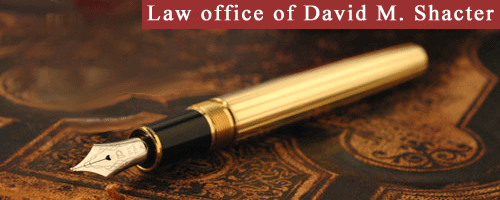|
|
With
No Will |
With
A Will |
With
A Living Trust |
|
At
Incapacity (unable to handle your financial affairs) |
Court
Control: Court
appointee oversees your care, must keep detailed records, reports to
court, and usually must post bond (even if appointee is your spouse).
Court approves all expenses, oversees financial affairs. |
Court
Control: Same as
no will |
No
Court Control:
Your successor trustee manages your financial affairs according to
instructions in your trust for as long as necessary. (In some
states, court intervention may be required for health care decisions.) |
|
At
Death |
Probate:
Court orders your debts paid and assets distributed according to state
law. |
Probate:
Same as no will, but assets distributed per your will (if valid and any
contests are unsuccessful). |
No
Probate: Debts paid and assets distributed by successor trustee
according to instructions in your trust. |
|
Court
Costs, Legal & Executor Fees |
At
Death: Often estimated at 3-8% of estate's value. At
Incapacity: Impossible to estimate. |
Same
as no will. Costs can increase if will is contested. |
At
Death: Usually none if no estate taxes. At Incapacity: None.
(Attorney can be helpful for larger estates.) |
|
Time |
At
Death: Usually 9 months to 2 years before heirs can inherit.
At Incapacity: Court involved until recovery or death. |
Same
as no will. |
At
Death: Usually just weeks (larger estates may take longer for estate
tax filing). At Incapacity: No delays. |
|
Flexibility
& Control |
None:
Court processes, not your family, have control at incapacity and death.
When you die, assets are distributed according to state law. |
Limited:
Same as no will except, when you die, assets are distributed according
to your will (if valid and any contests are unsuccessful). You can
change your will at any time. |
Maximum:
You can change/discontinue your trust at any time. Assets stay
under control of your trust, even at incapacity and after your death.
More difficult than a will to contest. |
|
Privacy |
None:
Court proceedings are public record. Family can be exposed to
disgruntled heirs, unscrupulous solicitors |
None:
Same as no will. |
Maximum:
Living trusts are not public record. Your family can take care of
your financial affairs privately. |

